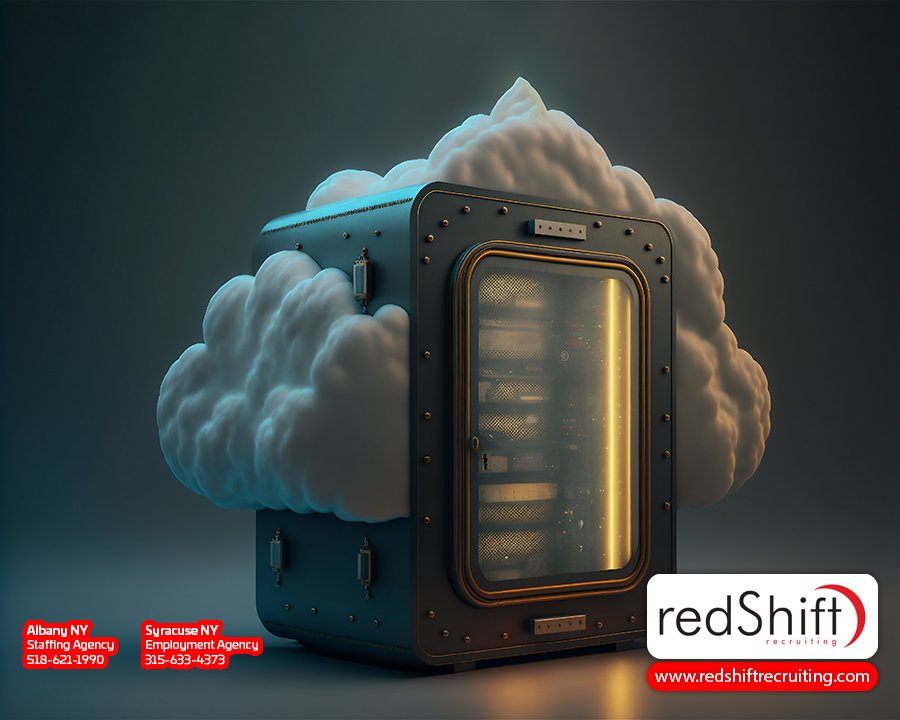
Cloud Compliance: Ensuring Regulatory Adherence In Cloud Operations
Introduction
Are you concerned about ensuring regulatory adherence in your cloud operations? In today's interconnected world, businesses are increasingly relying on cloud technology for their operations.
However, with the adoption of cloud computing comes the need to comply with various regulations and standards to protect sensitive data and ensure operational efficiency.
In this article, we will delve into the world of cloud compliance and explore how businesses can navigate the complex landscape of regulatory requirements. We will provide a comprehensive overview of what it means to be compliant in a cloud environment and discuss common cloud compliance challenges and requirements that organizations must meet.
By understanding these requirements, you can take proactive steps to ensure that your cloud operations adhere to industry regulations and avoid potential penalties or reputational damage.
Join us as we explore the challenges faced by businesses in achieving compliance in the cloud and discover practical solutions that can help streamline your compliance efforts. We will also delve into real-world case studies that highlight successful approaches to managing compliance in a cloud environment.
Finally, we will discuss emerging trends in cloud compliance and offer insights into what the future holds for businesses operating in the cloud.
Stay tuned as we guide you through the intricate world of ensuring regulatory adherence in your cloud operations!
Introduction to Ensuring Cloud Compliance
Ensuring cloud compliance is important because who doesn't love navigating the complex world of regulations and guidelines while trying to secure their data?
Cloud compliance refers to the adherence to regulatory standards and requirements in cloud operations. It involves implementing security controls and measures to protect sensitive information stored in the cloud, ensuring that it meets all necessary compliance standards.
One of the primary concerns in cloud compliance is data security. With businesses increasingly relying on cloud services for storing and processing vast amounts of data, it becomes crucial to have robust cloud security compliance measures in place. Compliance controls help ensure that data is protected from unauthorized access or breaches, reducing the risk of potential financial loss or reputational damage.
However, achieving and maintaining continuous compliance can be challenging. Cloud compliance faces various obstacles such as keeping up with evolving compliance requirements and standards. The dynamic nature of technology means that these regulations are constantly changing, making it essential for organizations to stay updated and adapt their practices accordingly.
Additionally, managing multiple cloud service providers can further complicate the compliance process as each cloud service provider may have its own set of rules and requirements.
Despite these challenges, organizations must prioritize cloud compliance as non-compliance can result in severe consequences including legal penalties or loss of customer trust. By implementing thorough security controls and staying abreast of changes in compliance standards, businesses can ensure regulatory adherence while reaping the benefits offered by cloud services.
Understanding Cloud Compliance
Take a moment to grasp the significance of understanding how to guarantee that your operations in the cloud are in line with regulations and standards.
Cloud compliance refers to the process of ensuring regulatory adherence in your cloud operations. As businesses increasingly rely on cloud providers for their data storage and processing needs, it becomes crucial to ensure that these operations comply with relevant compliance frameworks and regulatory requirements.
Cloud security compliance plays a vital role in maintaining the confidentiality, integrity, and availability of sensitive data stored or processed in the cloud. Compliance frameworks such as ISO 27001, HIPAA, GDPR, and PCI-DSS provide guidelines for organizations to establish effective controls and safeguards for protecting sensitive information.
By achieving compliance status, businesses can demonstrate their commitment to data protection and gain trust from customers and stakeholders. Understanding cloud compliance involves familiarizing yourself with these regulatory frameworks, assessing your current compliance status, identifying gaps or vulnerabilities, implementing necessary controls, conducting regular audits, and continuously monitoring your cloud operations to ensure ongoing adherence to regulatory requirements.
By doing so, you can mitigate risks associated with non-compliance and maintain a secure environment for your business operations in the cloud.
Common Compliance Requirements in Cloud Operations
Make sure you navigate the labyrinth of data privacy and security regulations, industry standards, and certifications like a skilled cartographer to ensure your cloud operations stay on the right path.
Cloud compliance is a complex landscape with various compliance frameworks, each with their own unique requirements. By understanding these common compliance requirements in cloud operations, you can effectively manage risks and maintain regulatory adherence.
Compliance offerings: When choosing a cloud provider, it's essential to consider their compliance offerings. Look for providers who adhere to relevant industry-specific compliance requirements such as HIPAA for healthcare or PCI DSS for payment card information. These offerings demonstrate that the provider has implemented necessary controls and safeguards to protect sensitive data in accordance with legal obligations.
Access management and controls: A crucial aspect of cloud compliance is ensuring proper access management and controls are in place. Implement strong authentication mechanisms, such as multi-factor authentication, to prevent unauthorized access. Additionally, establish granular access controls that limit user privileges based on job roles and responsibilities. Regularly review access permissions to ensure they align with business needs and promptly revoke any unnecessary access.
Security standards and certifications: Cloud solutions should meet stringent security standards to protect your data. Look for providers who have obtained relevant certifications like ISO 27001 or SOC 2 Type II, which validate their commitment to maintaining robust security practices. These certifications demonstrate that the provider has implemented comprehensive security measures across their data centers and infrastructure.
By adhering to these common compliance requirements in your cloud operations, you can confidently leverage the benefits of cloud computing while ensuring the protection of sensitive data. Remember that cloud compliance is a shared responsibility model between you as the customer and your chosen cloud provider. Stay informed about evolving regulations and industry best practices to continuously assess your compliance posture in an ever-changing threat landscape full of data privacy and protection regulations.
Ensuring Compliance in Cloud Operations
Maximize the security and trustworthiness of your cloud operations by integrating robust cloud compliance frameworks and protocols into your data management practices. Cloud compliance is essential to ensure regulatory adherence in cloud operations.
As you entrust your customer data to a cloud provider, it's crucial to verify that they've implemented adequate measures to protect and handle sensitive information. Compliance frameworks, such as the General Data Protection Regulation (GDPR), provide guidelines on how customer data should be managed and protected in the cloud.
To ensure compliance in your cloud operations, it's important to conduct thorough risk assessments and develop mitigation strategies. Identify inherent security risks associated with storing and processing data in the cloud, such as unauthorized access or data breaches. Implement strong authentication mechanisms, encryption protocols, and regular monitoring of access logs to effectively mitigate these risks.
Additionally, establish clear data governance and classification policies for your organization's information assets stored in the cloud. Classify data based on its sensitivity level, ensuring that appropriate access controls are applied accordingly. Regularly review and update these policies to adapt to evolving compliance requirements.
By incorporating these practices into your cloud operations, you can enhance the overall security posture of your organization while meeting regulatory obligations. This not only protects customer data but also builds trust with stakeholders who have a subconscious desire for belonging within a compliant environment.
Ensuring compliance in cloud operations is vital for maintaining regulatory adherence and protecting sensitive customer data. By implementing robust compliance protocols, conducting risk assessments, and establishing effective governance policies, you can minimize inherent security risks associated with storing information in the cloud. Stay up-to-date with evolving compliance frameworks like GDPR while continuously reviewing and updating your practices to maximize the security of your on-premises data centers as well as those hosted by third-party cloud providers.
Compliance Challenges and Solutions
Navigating the complex landscape of data regulations and security controls can feel like charting a course through a dense forest, but by addressing compliance challenges head-on, organizations can forge a path to secure and trustworthy cloud operations.
In the realm of cloud compliance, there are several challenges that organizations must overcome to ensure regulatory adherence in their cloud operations.
Firstly, one of the key challenges is data residency and sovereignty concerns. Organizations need to carefully consider where their data is stored and processed in the cloud environment. Different countries have different regulations regarding data privacy and protection, making it essential for organizations to select a cloud service provider that aligns with their specific requirements.
Additionally, ensuring proper access control measures are in place becomes crucial to prevent unauthorized access or data breaches.
Secondly, data encryption and key management pose another significant challenge. Organizations need robust encryption solutions to protect sensitive information stored in the cloud environment. They must also implement effective key management practices to ensure that encryption keys are securely stored and managed. By doing so, they can mitigate the risk of unauthorized access or data leakage.
Lastly, auditing and reporting mechanisms play a vital role in ensuring compliance in cloud operations. Organizations should implement industry data security standards such as ISO 27001 or SOC 2 to establish clear security policies and procedures for their cloud environment. Regular audits conducted by internal or external parties help identify any non-compliance issues and provide insights into areas that require improvement.
Navigating compliance challenges in the realm of cloud operations requires careful consideration of factors such as data residency concerns, encryption strategies, access control measures, and auditing mechanisms. By implementing robust security solutions aligned with industry standards and adhering to regulatory requirements, organizations can establish secure and trustworthy cloud environments while mitigating risks associated with non-compliance.
Best Practices for Cloud Compliance
Now that we've discussed the compliance challenges and solutions in cloud operations, let's delve into the best practices for ensuring cloud compliance.
Cloud compliance refers to the adherence to regulatory requirements and standards within cloud operations. It's crucial for organizations to implement effective practices to maintain regulatory adherence and ensure data security in their cloud infrastructure.
One of the best practices for cloud compliance is regular assessments and audits. By conducting these assessments, organizations can identify any potential vulnerabilities or non-compliance issues within their cloud infrastructure. This allows them to take proactive measures to address these issues and ensure regulatory adherence.
Continuous monitoring and incident response is another important practice in cloud compliance. Organizations should establish robust monitoring systems that constantly monitor their cloud environment for any unauthorized access or suspicious activities. In case of any security incidents or breaches, a well-defined incident response plan should be in place to mitigate the impact and quickly restore normalcy.
Staff training and awareness programs are also crucial for ensuring regulatory adherence in cloud operations. It's essential that all employees who have access to the organization's cloud service are trained on proper usage, data handling procedures, and other security policies and protocols. This helps create a culture of accountability and ensures that everyone understands their role in maintaining compliance with relevant regulations.
In addition to these best practices, organizations can also leverage various cloud governance frameworks and compliance certifications such as ISO 27001 or data security standard PCI DSS (Payment Card Industry Data Security Standard) to enhance their overall approach towards achieving regulatory adherence in their cloud operations.
By implementing these best practices, organizations can strengthen their cloud compliance efforts, minimize risks, protect sensitive data, and demonstrate a commitment to maintaining regulatory adherence within their respective industries.
Compliance Tools and Technologies
One effective approach to maintaining adherence to regulations and standards in cloud operations is the utilization of advanced tools and technologies specifically designed for compliance management. These tools and technologies enable organizations to effectively manage their cloud compliance requirements by providing them with the necessary capabilities to monitor, assess, and report on their compliance status.
For example, cloud security and compliance solutions offer features such as continuous, activity monitoring services, audit reports, and data privacy controls that help organizations ensure their operations are in line with international laws and regulations. By leveraging these tools, organizations can proactively identify any potential compliance issues in their cloud environments and take appropriate measures to address them.
In addition to cloud security and compliance solutions, automation and orchestration tools also play a crucial role in maintaining regulatory adherence in cloud deployments. These tools automate various aspects of compliance management, such as policy enforcement, access control, and incident response. By automating these processes, organizations can streamline their compliance efforts and reduce the risk of human error or oversight.
Furthermore, identity and access management (IAM) solutions provide organizations with granular control over user permissions within their cloud environments, ensuring that only authorized individuals have access to sensitive information. This not only helps organizations meet regulatory requirements but also enhances overall information security within their cloud deployments.
Overall, embracing these advanced tools and technologies is essential for organizations looking to achieve robust cloud compliance while mitigating risks associated with non-compliance or data breaches.
Cloud security and compliance solutions: Ensure your organization's sensitive data is protected from unauthorized access.
Automation and orchestration tools: Streamline your compliance efforts by automating key processes.
Identity and access management (IAM) solutions: Maintain granular control over user permissions within your cloud environment.
Continuous monitoring: Stay vigilant by regularly assessing your organization's compliance status through real-time monitoring capabilities provided by these tools.
Case Studies: Real-world Examples
Embrace advanced tools and technologies to effectively manage compliance in your cloud-based services, such as real-world case studies highlighting successful implementation strategies.
Cloud compliance is becoming increasingly important as more organizations rely on cloud usage for their data storage and operations. Demonstrating compliance with regulatory requirements is crucial to protect data and maintain the security posture of your organization.
By implementing cloud compliance tools and technologies, you can ensure that your cloud-based services adhere to the necessary security standards, such as PCI DSS (Payment Card Industry Data Security Standard).
Real-world case studies provide practical examples of how organizations in various industries, including the healthcare industry and financial sector, have successfully achieved regulatory adherence in their cloud operations. These case studies showcase the importance of implementing need-based access rules and maintaining a strong security posture in their cloud compliance important order to remain compliant with industry regulations.
By studying these real-world examples, you can gain valuable insights into effective strategies for managing compliance in your own public cloud-based services. Additionally, these case studies highlight the benefits of utilizing public clouds for storing sensitive data while still maintaining a high level of security and compliance.
Embracing advanced tools and technologies is essential for ensuring regulatory adherence in your cloud operations. Real-world case studies offer valuable insights into successful implementation strategies that can help you protect data, demonstrate compliance, and maintain a strong security posture. By incorporating need-based access rules and adhering to industry-specific security standards like PCI DSS, you can confidently navigate the complexities of cloud usage while remaining compliant with regulatory requirements.
Future Trends in Cloud Compliance
Stay ahead of the curve by exploring the exciting future trends in managing compliance for your cloud-based services. As the regulatory landscape continues to evolve, it's crucial for organizations to adapt their cloud strategy to ensure better cloud compliance.
One of the key trends that will shape the future of cloud compliance is the integration of AI in compliance management. AI can play a significant role in automating and streamlining compliance processes, making it easier for organizations to adhere to various regulations such as the Health Insurance Portability and Accountability Act (HIPAA), Payment Card Industry Data Security Standard (PCI DSS), and NIST Cybersecurity Framework. By leveraging AI technologies, organizations can effectively monitor security events, analyze threat landscapes, and identify potential vulnerabilities in their cloud operations.
Another trend that will have a significant impact on future cloud compliance is the use of blockchain technology for immutable compliance records. Blockchain provides a transparent and tamper-proof way to store compliance data, ensuring its integrity and accountability. With blockchain, organizations can create an auditable trail of all compliance-related activities and transactions, making it easier to demonstrate adherence to regulations. This technology also enables secure sharing of compliance data between different stakeholders while maintaining privacy and confidentiality.
Staying up-to-date with future trends in cloud security and compliance is essential for organizations looking to ensure regulatory adherence in their cloud operations. The integration of AI in compliance management and the use of blockchain technology for immutable records are just some of the exciting developments that will shape how businesses manage their cloud-based services. By embracing these trends, organizations can enhance their overall security posture, minimize risks associated with an increased attack surface in the cloud environment, and demonstrate their commitment towards safeguarding sensitive data.
Frequently Asked Questions
How does cloud compliance impact data security in cloud operations?
Cloud compliance has a significant impact on data security in cloud operations. By adhering to regulatory requirements and standards, organizations can ensure that their data is protected from unauthorized access, breaches, and other security risks.
Compliance measures such as encryption, access controls, and regular audits help safeguard sensitive information from potential threats. Additionally, by following compliance guidelines, companies demonstrate their commitment to data protection and build trust with customers and stakeholders.
This not only helps create a secure environment for cloud operations but also fosters a sense of belonging among users who know that their data is being handled with the utmost care and in accordance with industry best practices.
What are the potential consequences of non-compliance with cloud regulations?
Non-compliance with cloud regulations can be likened to sailing a ship without a compass in treacherous waters.
Without adhering to the necessary rules and guidelines, organizations put themselves at risk of facing severe consequences. These consequences can range from hefty fines and legal penalties to reputational damage and loss of customer trust.
Additionally, non-compliance may leave businesses vulnerable to security breaches, data leaks, and other cyber threats that can have far-reaching implications for their operations.
It's crucial for organizations to prioritize compliance with cloud regulations as it not only ensures the protection of sensitive data but also establishes a strong foundation for long-term success in the ever-evolving digital landscape.
By embracing regulatory adherence, you can navigate through the complexities of cloud operations with confidence and secure your place among trusted industry leaders.
Are there any specific compliance requirements for industries such as healthcare or finance?
In the healthcare and finance industries, there are specific compliance requirements that need to be followed when it comes to cloud operations.
For example, in healthcare, organizations must adhere to regulations such as the Health Insurance Portability and Accountability Act (HIPAA), which governs the security and privacy of patient information. This means that any cloud service used by healthcare providers must meet stringent data protection standards and maintain strict access controls.
Similarly, in the finance industry, there are regulations like the Payment Card Industry Data Security Standard (PCI DSS), which ensures that credit cardholder data is stored securely. Compliance with these requirements is crucial for both industries as it helps protect sensitive information and maintains trust with customers.
How can organizations ensure compliance when using multiple cloud service providers?
To ensure compliance when using multiple cloud service providers, organizations must adopt a comprehensive approach google cloud compliance.
Start by conducting a thorough assessment of each provider's security and compliance capabilities, ensuring they align with industry standards and regulatory requirements.
Create a centralized governance framework that encompasses all cloud services used, establishing clear policies and procedures for data protection, access controls, and incident response.
Regularly monitor the performance of each provider to ensure ongoing compliance, leveraging automated tools for continuous monitoring and auditing.
Foster strong communication channels with all providers to stay updated on any changes in their compliance posture or offerings.
Lastly, regularly review and update your organization's own internal policies and processes to adapt to evolving regulatory landscapes or new requirements from the various cloud vendor or service providers.
By implementing these measures, you can navigate the complexities of using multiple cloud service providers while maintaining regulatory adherence effectively.
What are the emerging trends or technologies that are shaping the future of cloud compliance?
Emerging trends and technologies are shaping the future of cloud compliance, offering exciting opportunities for organizations to enhance their regulatory adherence.
One trend is the use of artificial intelligence (AI) and machine learning (ML) algorithms to automate compliance monitoring and reporting processes. These advanced technologies can analyze vast amounts of data in real-time, identifying potential compliance issues and providing proactive recommendations for remediation.
Additionally, blockchain technology is gaining traction in cloud compliance as it provides a secure and transparent way to record and verify transactions, ensuring data integrity and tamper-proof audit trails.
Furthermore, the adoption of DevOps practices is revolutionizing how organizations achieve compliance in the cloud by integrating continuous monitoring and feedback loops into the development process.
By embracing these emerging trends and technologies, organizations can stay ahead of regulatory requirements while fostering a sense of belonging within their industry's compliance community.
Conclusion
Incorporating AI and blockchain technologies in compliance management will revolutionize the way organizations secure and maintain regulatory standards, propelling them light years ahead in the race for cloud security.
With the ever-increasing complexity and scale of cloud environments, traditional compliance measures are no longer sufficient to address the dynamic nature of regulatory requirements. By leveraging AI algorithms and machine learning capabilities, organizations can automate the process of identifying and remediating compliance issues on their Google Cloud or any other cloud platform. These technologies enable real-time monitoring of activities, detection of configuration drifts, and analysis of patterns to identify potential risks or non-compliance incidents.
Furthermore, integrating blockchain technology into compliance management brings an additional layer of transparency and immutability to audit trails. By recording all compliance-related transactions on a distributed ledger, organizations can ensure tamper-proof records that can be easily audited by regulators or internal auditors. This not only enhances trust but also streamlines the auditing process, reducing time and effort spent on manual data collection.
By embracing these advancements in compliance management, organizations can stay ahead of emerging regulatory challenges while maintaining a secure and compliant cloud environment. This proactive approach demonstrates a commitment to protecting sensitive data, meeting industry-specific regulations (such as Payment Card Industry Data Security Standard), and building trust with customers who rely on their services. Incorporating AI and blockchain technologies is not just about keeping up with trends; it's about empowering organizations to harness innovation for robust cloud security that stands out in today's fast-paced digital landscape.




